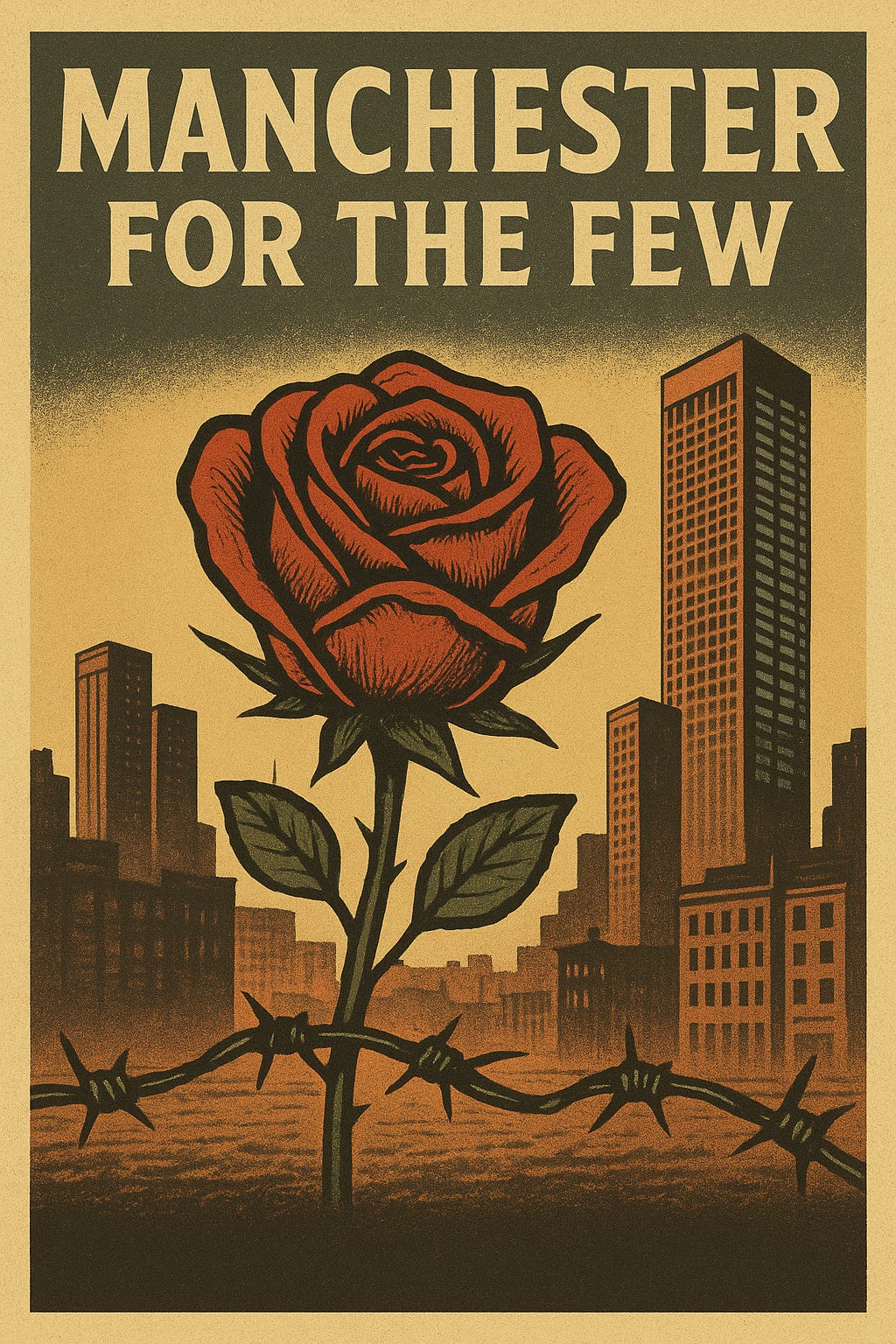Manchester for the Few: The Cost of Growing Inequality
Dr Adam North suggests what Manchester might look like if wealth inequality continues to grow.
Manchester is a city built on contradiction. Once the beating heart of the Industrial Revolution, it prided itself on being a place where working people forged not just steel and cotton, but culture, solidarity, and political change. Today, glass towers rise alongside crumbling terraces, swanky bars are down the road from food banks and homeless camps. The gap between rich and poor grows ever wider. If wealth inequality continues to grow, and the city’s leaders allow it to cater only to the rich, Manchester risks becoming a hollowed-out version of itself: wealthy in image, impoverished in soul.
I’m not here to suggest that these issues are unique to Manchester, because they’re not. Neither is it to blame the leadership, because, for the most part, they seem to be passionate about tackling these issues. The article is merely a vision of what will happen if inequality continues to grow.
The Vanishing City Centre
Already, central Manchester is fast becoming unaffordable to the very people who make it vibrant. Developers build luxury apartments at breakneck pace, yet social housing waits years for approval. If this trend continues, the city centre will transform into a playground for the affluent few, where bars, restaurants, and housing are priced for bankers and overseas investors. Ordinary Mancunians will be pushed out to the margins, commuting in to serve but no longer able to belong.
Cultural Erosion
Manchester’s strength has always been its culture—its music, art, and spirit of rebellion. But culture needs space to breathe. Rising rents and gentrification threaten grassroots venues, galleries, and studios that gave the city its identity. If wealth inequality continues to push communities out, Manchester’s future will be corporate festivals and polished, soulless entertainment. The working-class creativity that once defined the city could be priced out entirely.
Services Stripped Away
Inequality doesn’t just mean unaffordable rents. It reshapes the priorities of governance. A Manchester that caters only to the wealthy will see resources diverted to vanity projects instead of public services. Shiny tram extensions and luxury developments will mask neglected schools, overstretched hospitals, and underfunded community centres. Wealth hoarded at the top leaves the rest fighting for scraps.
A City Without Roots
If inequality continues to deepen, Manchester risks losing not only its identity but its people. Young workers will leave in search of affordable lives elsewhere, while communities long rooted in the city are forced out by rising costs. The result is a Manchester without Mancunians: a branded shell, marketed to investors and tourists, rather than a living, breathing city.
Helen Pidd recently published a brilliant piece in The Guardian considering whether Manchester is turning into London.
Is There Another Path?
It doesn’t have to be this way. A different Manchester is possible: one that recognises housing as a right, not an asset class; one that invests in public services as much as in skyscrapers; one that values its people more than its property portfolios. That path requires political will beyond local government, through national initiatives—and the courage to put the needs of ordinary people above the interests of developers and financiers.
Conclusion: Whose Manchester?
The question facing the city is simple: who is Manchester for? If the answer is only the rich, then the city’s proud history of solidarity and struggle will be betrayed. But if the people fight for a fairer Manchester, one rooted in equality, culture, and community, then the city can grow and retain the soul we know and love.


